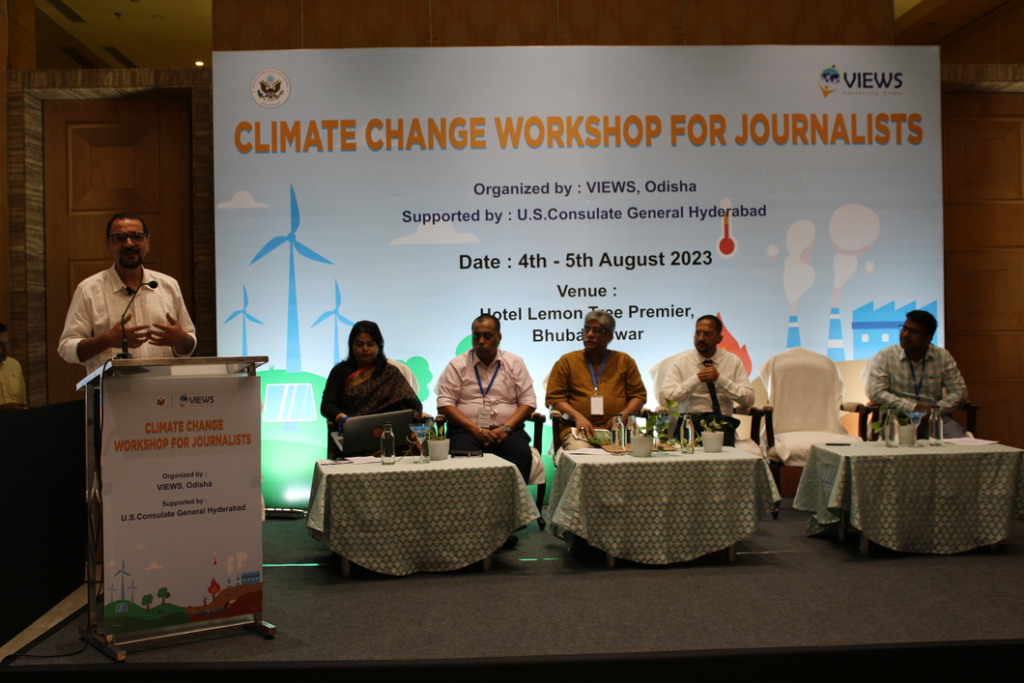It’s Time to Be Climate Smart
Engaging Youth to Combat Climate Change
Climate change and disaster risk reduction
Odisha has been prone to both natural and man-made calamities for a long time. Flood, droughts and cyclones are regular features in the state. These disasters have not only led to the loss of human lives but also caused extensive damages to properties and resources. The coastal districts of Orissa are subjected to regular flooding due to cyclones and extreme rainfall.
Climate change adaption by small-scale fisheries
VIEWS has been conducting state-level consultations and district-level workshops to highlight the impact of climate change on small-scale fisheries in Odisha. Our team has also been part of research work on climate change adaptation by small-scale fisheries, coastal livelihood security among marine fishing community, value chain analysis of marine fish products, etc. VIEWS is also a member of V2V (Vulnerable to Viability) global fishery partnership promoted by Waterloo University, Canada.
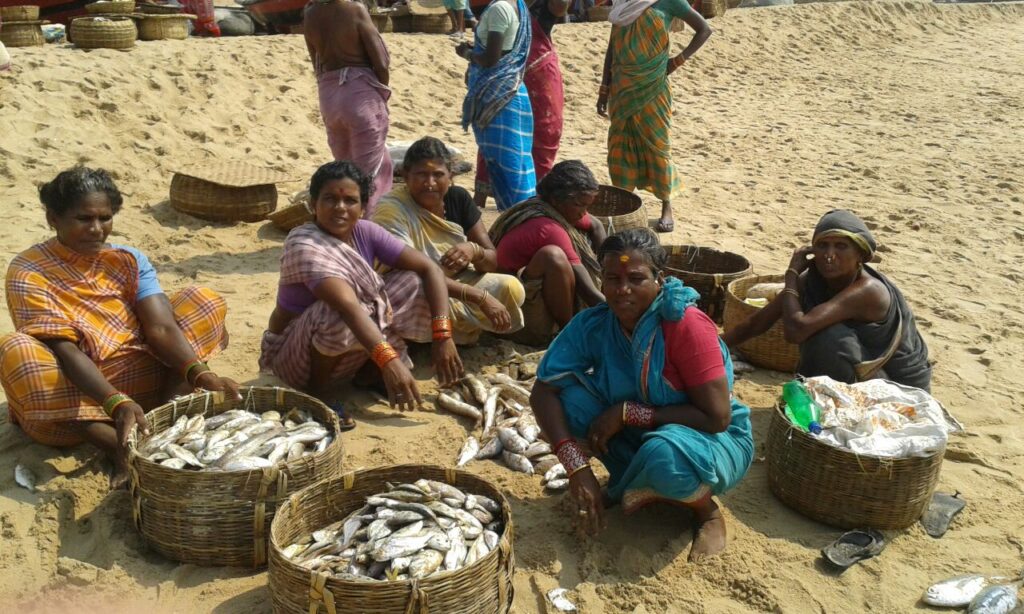
Safe migration
Changes in monsoon patterns, frequent cyclones, over-exploitation of available land and limited access to irrigation have resulted in widespread food and nutrition insecurity in our area of operation. Non-agricultural wage labour is hard to come by, except through public employment generation schemes. Farm labour work is available for limited periods and pays very low wages, triggering large-scale migration to cities in search of work. Ganjam reports the highest migration in the state. Migrants face the challenges of limited information about jobs at the destination, lack of information on where to turn to for information or support, withholding of payment by the employer, physical and verbal abuse by employers, unexpected termination, payment of less than agreed upon wages, poor access to health care facilities, lack of skills to obtain better jobs/wages, difficulties in sending money to the family, difficulties in getting train tickets for travel, etc. VIEWS ropes in experts to sensitise the community on safe migration to ensure occupational, emotional, financial and social security ahead of migration, during migration and while at the destination site.
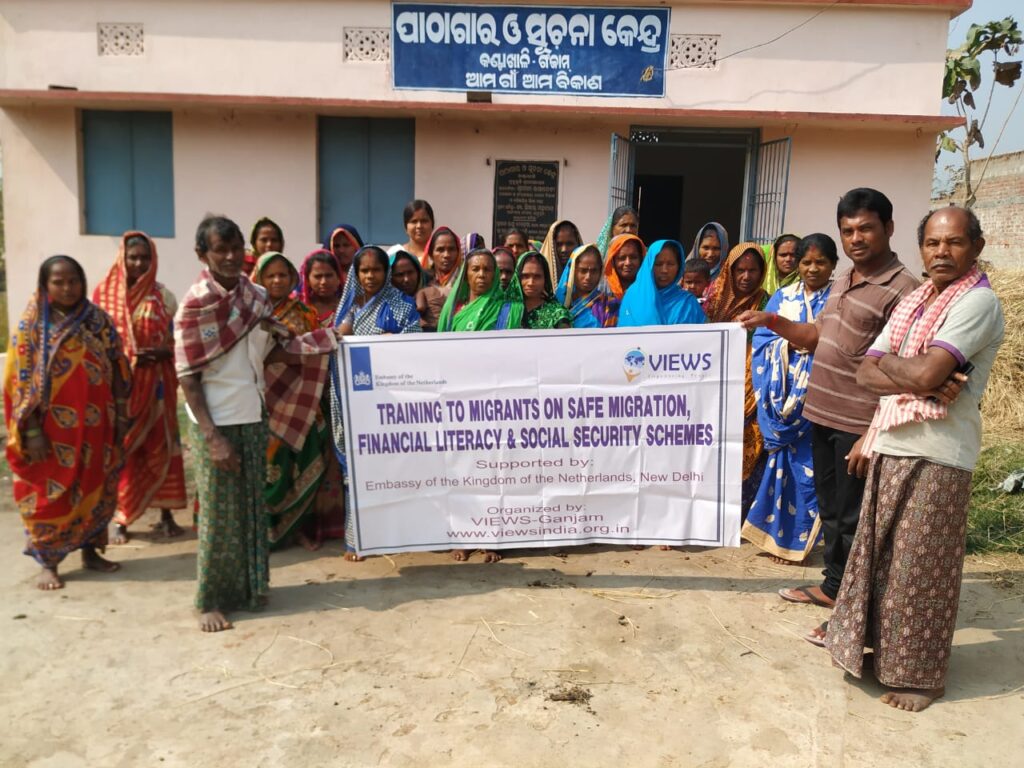
Promoting clean energy products
VIEWS in collaboration with Centurion University designed a solar dryer for dry fish processing. It also promoted low-cost fuel-efficient stoves that are both affordable and easy to use. It has reduced the number of trips of villagers for firewood while allowing more trees to grow. Also, burning smaller amounts of wood means less smoke will engulf their homes and their lungs. The low-cost fuel-efficient stoves have been distributed among 30 households. The beneficiaries say that portability of the stoves meant that the families could cook anywhere as per there convenience. For the beneficiaries, portability is a huge help during cyclones as they can carry it with them to the cyclone shelters easily.

Disaster relief
With our operational area situated in one of India’s most vulnerable district to cyclones, VIEWS has upped its skills to timely respond to catastrophic situations by providing humanitarian aid to the affected persons and communities. Examples of such calamities in recent year are Cyclone Fani and Amphan. VIEWS provides direct assistance in the form of essential supplies, food, toiletries, water, etc. to alleviate suffering of the people during disasters. Also, it provides financial assistance to those who are impacted, besides trauma counselling and other support services.
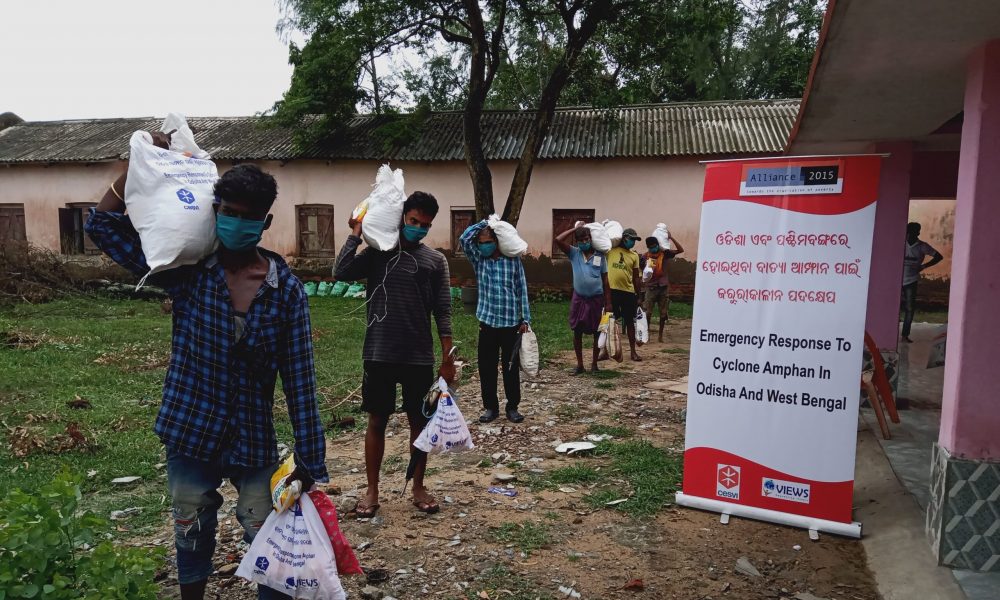
Rehabilitation efforts
Team VIEWS mobilises resources to provide emergency shelter and expedite the rehabilitation of persons displaced by disasters in the shortest possible time. We have provided aid and services to the communities that lost their accommodations because of cyclones. Similarly, we repair important community institutions like schools which are often damaged by natural calamities.
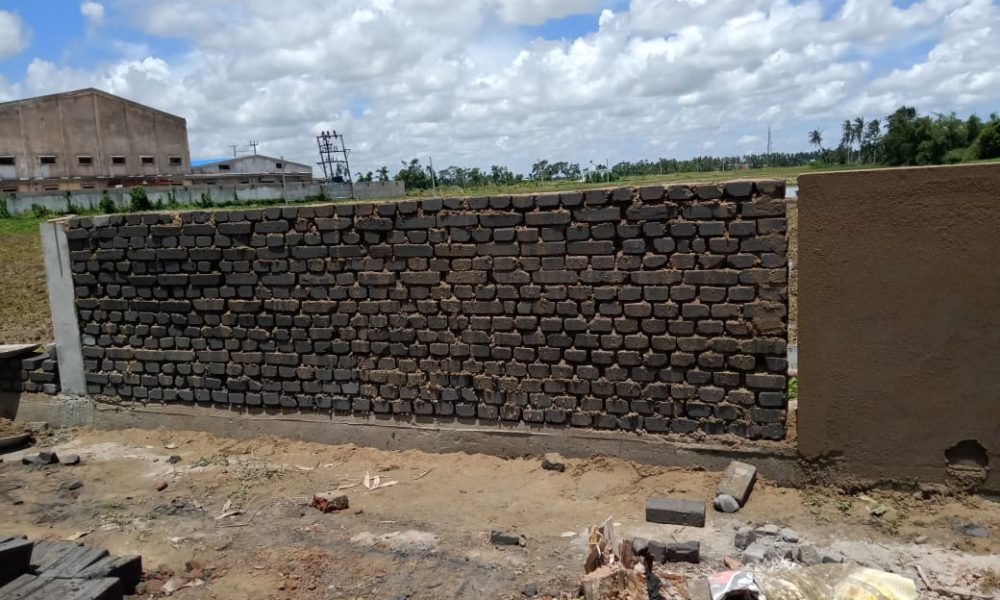
Community-based disaster preparedness
Our team brings together people within the same community to enable them to collectively address disaster risks and pursue preparedness. VIEWS follows the principles of solidarity, joint responsibility, non-discrimination, humanity, impartiality, neutrality, cooperation and media advocacy.
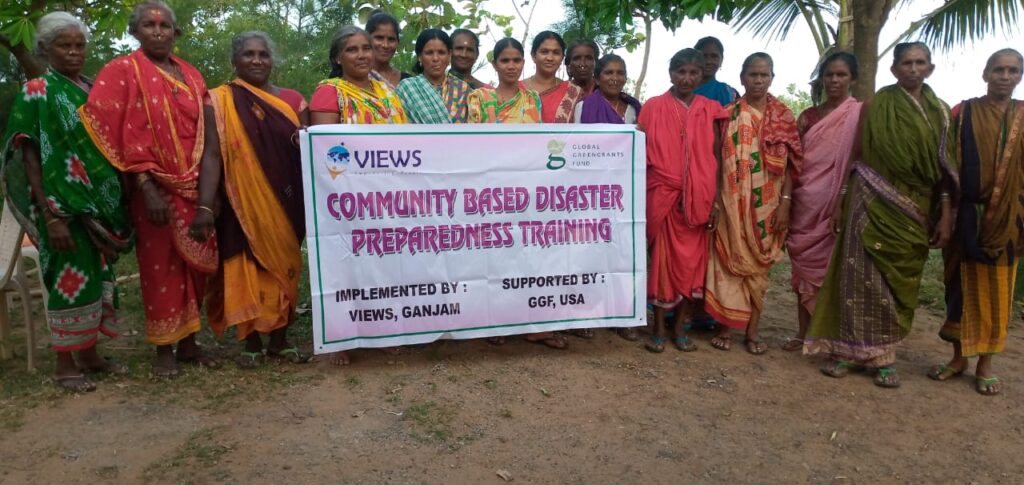
Climate change reporting in media
VIEWS has been conducting specialised training workshops in Odisha, Andhra Pradesh and Telengana states to enhance climate change coverage in regional media. The main goal is to equip vernacular language journalists with skills and knowledge to produce comprehensive articles on climate change. The training is focused on information gathering, analysis, and presentation of climate change causes, impacts, and solutions. By providing tools and a conceptual framework, the initiative encouraged the creation of informed and impactful climate change stories that educate the public.
